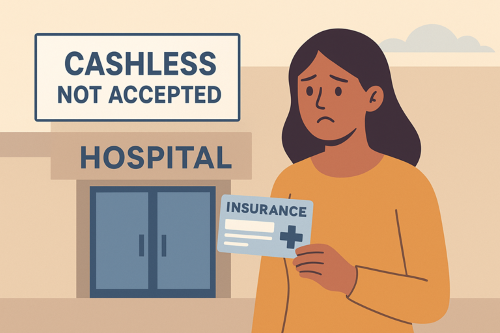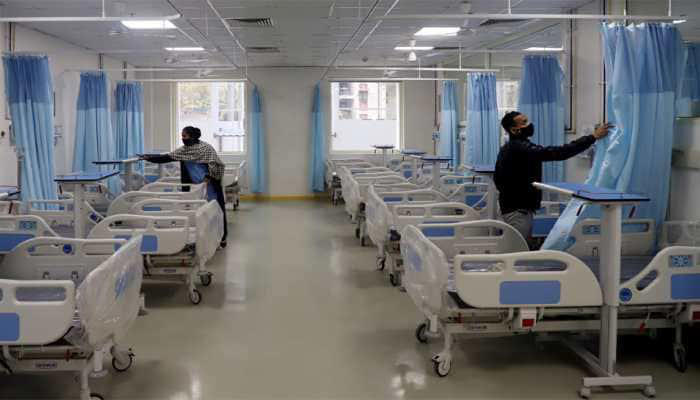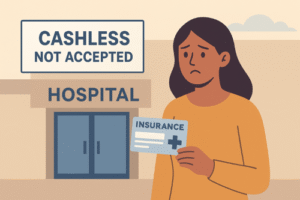Hospitals vs Insurers: Policyholders Caught in the Crossfire of Rising Medical Costs

Hospitals vs Insurers: Policyholders Caught in the Crossfire of Rising Medical Costs
Cashless claim disputes put patients at risk despite health insurance cover
The long-simmering tension between private hospitals and insurance companies over reimbursement rates has once again flared up, leaving policyholders to bear the burden of India’s spiralling medical inflation.
The conflict boiled over on August 16, when Niva Bupa suspended cashless services at Max Hospitals over unsettled reimbursement issues. Days later, the Association of Healthcare Providers India (AHPI)—which represents over 15,000 hospitals—advised its members to suspend cashless services for Bajaj Allianz and raised similar concerns against Care Health. The impasse lasted eight days before partial resolution.

Now, the standoff has widened. AHPI has warned that unless its demands are addressed by September 22, 2025, hospitals may suspend cashless facilities for Star Health Insurance customers as well. For thousands of families, this could mean paying hefty sums upfront at the time of admission, only to seek reimbursement later—a move that undermines the very purpose of health insurance.
The General Insurance Council (GI Council), representing all non-life insurers, has strongly objected, calling the proposed action arbitrary and damaging to policyholders’ trust. While insurers argue that hospitals inflate bills and push up treatment costs, hospitals accuse insurers of underpaying, making unexplained deductions, and forcing lower tariffs that compromise care.
This tug-of-war has real consequences for patients. According to the Council of Insurance Ombudsman’s 2023–24 report, Star Health already tops the chart for consumer complaints, with over 10,000 cases linked to rejected claims.

Experts stress that even if cashless facilities are suspended, policyholders don’t lose coverage. Claims can still be settled through reimbursement, but families must bear the initial costs—often a crushing financial burden during medical emergencies.
For most households, the biggest reassurance of health insurance lies in cashless hospitalisation, which ensures money does not delay treatment. If disputes between insurers and hospitals continue to disrupt this mechanism, it risks eroding public faith in health insurance altogether.












